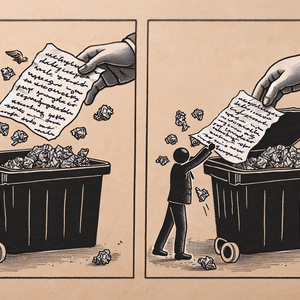Unconventional Therapy Roles That Make a Difference

Equine therapy, also known as horse therapy, involves therapeutic interactions between clients and horses, leveraging the deep emotional connections formed between humans and animals. The process encourages self-reflection, builds trust, and enhances communication skills, making it particularly beneficial for individuals with conditions like PTSD, anxiety, and autism. A notable study published in the Journal of Clinical Psychology examined the effects of equine therapy on veterans suffering from PTSD. The results demonstrated significant reductions in PTSD symptoms, showcasing the therapeutic potential of this approach. Participants reported feelings of calm, connection, and increased self-awareness through their interactions with horses. The animals serve as non-judgmental companions, allowing clients to explore their emotions in a supportive environment. This method fosters personal growth and provides clients with valuable life skills, including improved confidence and social interaction.
Adventure Therapy: The Great Outdoors as a Therapeutic Space
Adventure therapy combines the thrill of outdoor activities with therapeutic practices to promote healing and personal development. This approach is particularly effective for individuals who thrive in dynamic environments and prefer experiential learning. Activities such as rock climbing, hiking, and canoeing are not just recreational; they serve as metaphors for overcoming personal obstacles, fostering resilience, and enhancing self-esteem. Organizations like Outward Bound exemplify the principles of adventure therapy, offering programs designed to help participants confront personal challenges through outdoor experiences. Clients often report increased self-confidence and improved coping skills as they navigate both the physical demands of the activities and their emotional responses. The natural environment acts as a catalyst for healing, facilitating deep connections among participants and encouraging them to engage with their feelings in a transformative way. By integrating physical challenges with emotional exploration, adventure therapy creates a unique and impactful therapeutic experience.
Virtual Reality Therapy: Immersive Healing Experiences
In an age where technology is reshaping various aspects of our lives, virtual reality (VR) therapy has emerged as a cutting-edge tool for mental health treatment. This innovative approach immerses clients in virtual environments where they can confront fears, practice coping strategies, and engage in therapeutic exercises within controlled settings. Research from institutions like the University of Southern California has shown that VR therapy can significantly reduce anxiety and improve emotional regulation. For instance, individuals with a fear of flying can utilize VR simulations to experience airplane flights, gradually desensitizing themselves to their anxiety triggers. This method not only provides a fresh perspective on therapy but also appeals to those who may feel uncomfortable in traditional therapy settings. By harnessing the power of technology, therapists can create tailored experiences that resonate with clients, making therapy more accessible and engaging.
Unconventional therapy roles such as equine therapy, adventure therapy, and virtual reality therapy are reshaping the mental health landscape, offering diverse and innovative approaches to healing. These methods cater to individuals who may not connect with traditional therapeutic practices, providing unique opportunities for growth and transformation. As society increasingly recognizes the significance of mental health, these unconventional therapies serve as valuable tools for fostering resilience and personal development. Whether through the gentle companionship of a horse, the invigorating challenges of the great outdoors, or the immersive experiences of virtual reality, these niche therapy roles are making a meaningful difference in the lives of countless individuals. By expanding our understanding of therapy, we open the door to more inclusive and effective mental health care, allowing more people to embark on their journey toward healing and self-discovery. As the field continues to evolve, the integration of unconventional therapies promises to enhance the therapeutic experience for those seeking support.
Equine-Assisted Therapist
Equine therapy centers, mental health clinics, veterans' rehabilitation programs
Core Responsibilities
Conduct therapeutic sessions involving horse interactions to facilitate emotional and psychological healing.
Create individualized treatment plans that incorporate equine activities tailored to client needs, particularly for those with PTSD, anxiety, or autism.
Assess client progress and adapt therapeutic techniques based on their responses to equine interactions.
Required Skills
Background in psychology or social work, along with specialized training in equine-assisted therapy.
Strong interpersonal skills to build trust and rapport with both clients and horses.
Knowledge of animal behavior and equine care to ensure safe and effective therapy sessions.
Adventure Therapist
Outdoor therapy organizations, wilderness therapy programs, youth development agencies
Core Responsibilities
Design and facilitate outdoor adventure programs that promote personal growth and emotional healing through experiential learning.
Guide clients through activities such as rock climbing, hiking, and team-building exercises while addressing emotional and psychological challenges.
Evaluate and document client progress during and after participation in adventure activities.
Required Skills
Certification in adventure therapy or outdoor education, along with a background in psychology or counseling.
Strong leadership and communication skills to manage group dynamics and foster a supportive environment.
Ability to assess risks and ensure safety during outdoor activities.
Virtual Reality (VR) Therapist
Mental health clinics, technology startups focusing on health tech, research institutions
Core Responsibilities
Develop and implement VR therapy sessions tailored to individual client needs, focusing on phobia treatment, anxiety management, and emotional regulation.
Monitor client responses to VR environments and adjust scenarios to maximize therapeutic benefits.
Collaborate with technology developers to create customized VR experiences that align with therapeutic goals.
Required Skills
Background in psychology, counseling, or social work, with additional training in VR technology and therapeutic applications.
Familiarity with mental health disorders and evidence-based therapeutic techniques.
Technical proficiency in VR software and hardware to effectively implement therapy sessions.
Art Therapist Specializing in Non-Traditional Media
Hospitals, community art centers, mental health organizations
Core Responsibilities
Utilize various non-traditional art forms (e.g., digital media, performance art) in therapeutic settings to help clients express emotions and process experiences.
Conduct assessments to determine the most effective artistic modalities for individual clients, particularly those who may resist verbal therapy.
Facilitate group art therapy sessions that promote social interaction and community building among participants.
Required Skills
Master’s degree in art therapy or a related field, along with relevant licensure and certification.
Strong understanding of psychological principles and the therapeutic use of art.
Creativity and adaptability to work with diverse artistic mediums and client preferences.
Wilderness Therapy Program Director
Wilderness therapy programs, residential treatment facilities, youth development organizations
Core Responsibilities
Oversee the development and implementation of wilderness therapy programs, ensuring they adhere to therapeutic and safety standards.
Train and supervise staff, including therapists and outdoor guides, to deliver high-quality therapeutic experiences.
Evaluate program effectiveness through client feedback and outcome measures, making adjustments as needed to meet goals.
Required Skills
Extensive experience in wilderness therapy or outdoor education, along with managerial experience in a therapeutic setting.
Strong leadership and organizational skills to manage staff and program logistics effectively.
Knowledge of risk management and emergency response protocols in outdoor settings.


